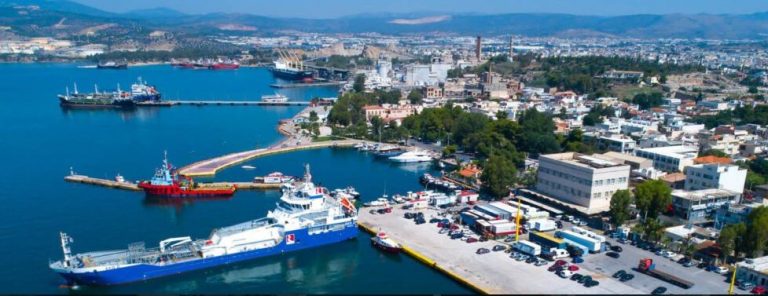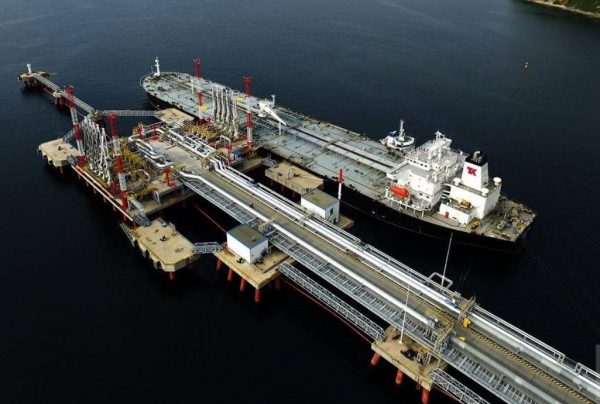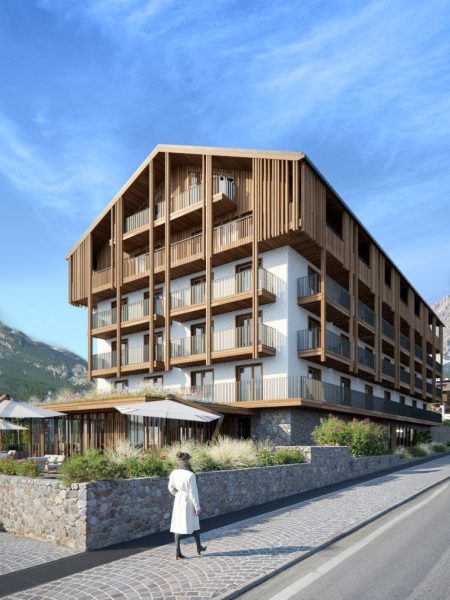
Although better known as a host area for decommissioned ships, few know that the port of Elefsina (ancient Eleusis) is one of the most important ports for serving bulk cargo in our country. In fact, it now aspires to respond effectively to the impending increase in the volume of loading and unloading work, mainly of building materials, for the needs of the implementation of the emblematic project in Ellinikoν. According to the management of the Elefsina Port Authority, cargo traffic increased by 50% in 2020 compared to 2019. Elefsina Bay is one of the largest and safest shelters for decommissioned ships in the world. And this because of its morphology (closed sea). Whenever α shipping company faces a small or bigger crisis, the “surplus” ships find hospitality in the Gulf of Elefsina. In the “backyard” of the port of Piraeus, as it has been called in the local maritime lingo.
The same thing happened at the end of the 2000s with the great crisis that broke out in 2008. At the time, many ships arrived and moored at the three anchorages of the Gulf of Eleusis, with some of them still there. However, the current situation is not close to what the area experienced in the early 1980s, when there were so many “battered” ships in the wider sea area that, as it was said at the time, “you could walk from Elefsina to Salamis, by walking from ship to ship.” According to greekshippingmiracle.org, almost 700 Greek-owned ships were then decommissioned in the Gulf of Elefsina and in other parts of Greece.
Haven
However, many of the decommissioned ships – victims of the last crisis – have been recommissioned in the last two or three years as markets have taken an upward trajectory. In the years 2021-2022, a total of 10 ships were decommissioned, which remained moored in designated sea zones of the Elefsina Port Authority for a long time waiting for a fare. These are two tankers, four tugs, three vehicle transport ships and an offshore drilling unit, which were chartered and have already left the area. Also, according to the data of the Elefsina Port Authority, which controls the other shipyards in the Gulf of Elefsina, out of 44 ships that were decommissioned in 2016 in its own areas of responsibility, only 16 ships are left today.
The presence of the decommissioned ships naturally provokes reactions from a portion of the local community, even though they are not abandoned ships, as they meet the legally necessary seaworthiness conditions and fully comply with the applicable provisions for the protection of the environment.
As the CEO of Elefsina Port Authority Apostolos Kamarinakis points out, “the Organization makes every effort so that the decommissioned ships that are currently docked in Elefsina are in a state of warm lay up, ie ready to depart at any time as soon as they find a favorable fare. On the contrary, the old ships that have been abandoned in the area, where two smelters operated and are now closed, are creating a problem.”
The strategic plan
In parallel with the effort to “clean” the bay from abandoned ships, the Elefsina Port Authority administration has implemented a development plan that aims to remove the port of Elefsina from the “shadow” of the port of Piraeus. In addition to increasing freight traffic, strategic plans include the preparation of a new, with a horizon of 25 years, development plan (master plan), the participation of the port of Elefsina in the Green Award network, the “green” transformation of the port in collaboration with DESFA. It is also planning to improve the competitiveness by upgrading the port services in view of their planned connection with the railway network and the freight center in Thriasio Pedio.
Finally, in the framework of the Cooperation Agreement signed with Eleusis 2023 – European Capital of Culture, it is implementing the innovative project “Sacred Sea Road” which concerns the construction of a new sea route that will start from Piraeus and end at the historic port of Eilefina , crossing the Strait of Salamis and uniting seven cities (Piraeus, Salamina, Keratsini – Drapetsona, Perama, Haidari, Aspropyrgos – Elefsina). The inauguration of the new maritime connection is planned for 2023 with the start of the events of Eleusis – Capital of Culture.
Latest News

Cost of Living: Why Greece’s 3% Inflation Is Raising Alarm
Greece appears to be in a more difficult position when it comes to price hikes, just as we enter the era of Trump’s tariffs.

Fitch Ratings Upgrades the Four Greek Systemic Banks
NBG’s upgrade reflects the bank’s ongoing improvements in its credit profile, Fitch notes in its report, including strong profitability, a reduction in non-performing exposures (NPEs), and lower credit losses

Trump to Announce Sweeping New Tariffs Wednesday, Global Retaliation Expected
With Trump's announcement just hours away, markets, businesses, and foreign governments are bracing for the fallout of one of the most aggressive shifts in U.S. trade policy in decades.

Inflation in Greece at 3.1% in March, Eurostat Reports
Average inflation in the eurozone settled at 2.2%, compared to 2.3% in February

Greece’s Unemployment Rate Drops to 8.6% in February
Despite the overall decline, unemployment remains higher among women and young people.

Jerry Kalogiratos Highlights Key Role of Energy Transition and Data Demand in LNG Outlook
Energy transition and the prospects of LNG were discussed at Capital Link’s 19th Annual International Maritime Forum, during a panel discussion with Jerry Kalogiratos (Capital Clean Energy Carriers Corp.)

Santorini Safe and Ready for a Dynamic Tourism Season
Authenticity, cultural heritage, and genuine experiences at the center of Santorini's new promotional campaign

Electricity Bills: Greece Announces Reduced Tariffs Schedule
Greece will now offer lower electricity rates between 11:00-15:00 and 02:00-04:00

Chevron Confirms Eyeing Natural Gas Exploration South of Crete
Chevron recently declared its intent to explore a third area, south of the Peloponnese.

Evangelos Marinakis: A time of change from which shipping can benefit
Speaking at the 19th Annual Capital Link International Shipping Forum Evangelos Marinakis stressed the challenges that shipping faces today












![Τουρκία: Μεγάλες βλέψεις για παραγωγή ηλεκτρικών οχημάτων [γράφημα]](https://www.ot.gr/wp-content/uploads/2025/03/ot_turkish_autos-90x90.png)











![ΕΛΣΤΑΤ: Αυξήθηκε η οικοδομική δραστηριότητα κατά 15,6% το Δεκέμβριο [πίνακες]](https://www.ot.gr/wp-content/uploads/2025/03/DSC9655-2-1024x569-1-90x90.jpg)

















 Αριθμός Πιστοποίησης
Αριθμός Πιστοποίησης